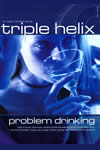Children living with HIV infection or AIDS-related illnesses themselves are amongst the most vulnerable of all children. They and their families experience enormous losses as well as stigma and prejudice, which may be felt in their communities, schools, and often, even in church and Sunday school.
The latest estimate from UNAIDS (end of 2004) indicates that there are 2.2 million children worldwide under 15 years of age who are living with HIV themselves, and of these, 640,000 became infected during 2004. The number who died in the same year was just over half a million. The total number of adults and children living with HIV in 2004 is approximately 40 million.
Of the 2.2 million children who are infected with HIV, most are living with recurrent illnesses, many are severely malnourished as a result of persistent or recurrent diarrhoea, or simply because of the family’s poverty and lack of nourishing food, and many are disabled as a result of opportunistic infections such as cryptococcal meningitis or toxoplasmosis. As their immune suppression worsens, cancer and HIV related encephalopathy may increase their suffering, and that of their parents or care givers. All of them are suffering emotional stress and trauma, having usually lost one or both parents, or a sibling, and they will often end up as an unwanted burden in the household of a grandmother, auntie or uncle, or in some cases, a child-headed household. Their ill-health may have lost them the ability to go to school, and with that their normal school life and circle of friends. They need a holistic approach to care which includes the following elements:
- Comprehensive, holistic medical care which offers the whole spectrum of care needed, from antiretroviral drugs (ARV’s), when available, to rehabilitation, nutritional support and palliative care as necessary
- Psychological/emotional care and support to the child, the parents or care givers, in particular the grandmothers, and the siblings
- Training to care givers in simple nutritional and nursing care needed by a sick child at home
- Spiritual care and support, appropriate to the child and family background
- Social support and monitoring, including practical help, food aid where needed, training in income generation, and promotion of independence and self-sufficiency
- Sensitisation and mobilisation of community leaders and members to provide on-going support and input to children and families within their own communities identified by them as being especially vulnerable
- Development, through community mobilisation and training, of community support structures, such as children’s clubs, work-shops and clubs for grandmothers and other care givers, and training in income generating activities to support families, child headed households and other vulnerable groups
- Training doctors, nurses and other health workers to provide such care, and to communicate effectively with sick children and their care givers
14 million children are estimated to have been orphaned world wide as a result of HIV and AIDS. There are many programmes that focus on the provision of school fees, food aid and clothing to families who are caring for orphans, but few are taking up the challenge to deal with the most vulnerable children – those who are, themselves, ill as a result of HIV. Mildmay International is one of the few that focus specifically on these children. It is a nondenominational Christian organisation, registered as a charity in the UK, where its work with HIV/AIDS started in 1988 at the Mildmay Mission Hospital in the East End of London. Europe’s first hospice programme for people living with AIDS was set up to provide professional and Christian holistic palliative care that led in many instances to rehabilitation of the adults, and later children, for whom they provided care. This work led eventually to the development of a number of care programmes in Uganda, Kenya, Tanzania and Zimbabwe, and to the delivery of training in those and many other countries.
































